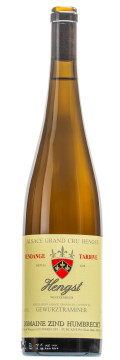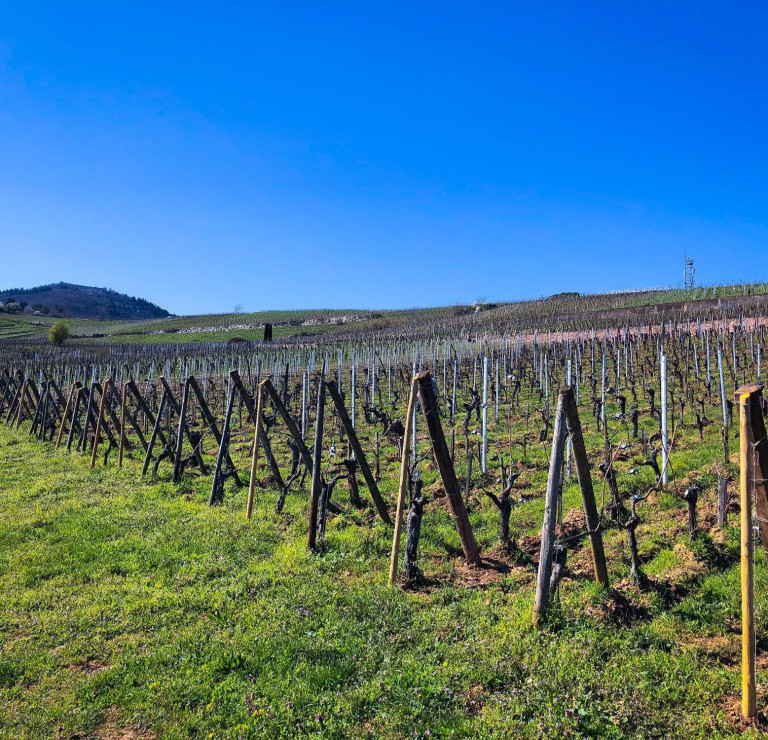
Technical presentation
| Bottling : | September 2012 |
|---|---|
| Acquired alcohol : | 12.5° |
| Residual sugar : | 102 g/l |
| Total acidity : | 3.2 g/l H2SO4 (4.9 g/l Acide Tartrique) |
| pH : | 3.8 |
| Yield : | 25 hl/ha |
| Optimum tasting : | 2016-2041+ |
| Average age of vines : | 60 years |
| Terroir : | Grand Cru Hengst |
| Available for sale : | Yes |
| Soil : | Marl, Oligocene calcareous , South/South East facing, medium/steep slope |
Description of the wine Gewurztraminer Grand Cru Hengst 2011 - Vendange Tardive
The Hengst Grand Cru vineyard is located in a warm, dry and precocious area in Alsace, very close to Colmar and protected by the proximity of the Vosges mountain range. Its south-east facing increases the effect of the sun as the grapes are exposed to sun rays early in the morning. Hengst never suffers of drought because water reserves in the marl-limestone soil are sufficient, but it means that botrytis develops late if any. Often harvested very ripe, the Hengst is rarely a Vendange Tardive because of the increased resistance of the old vines to rot development. When noble rot develops sufficiently, it does allow for the production of magnificent late harvest wines like this 2011.

Tasting notes
02/2013 : The nose shows already at this early stage all the complexity of this great Gewurztraminer vineyard: intense spicy, leather, minerals, wax/honey, ripe litchi, mangoes… the list would be to long and it gets only more intense after a long aeration. The aromatic profile on the nose and palate is very similar to an SGN, but unlike a real SGN, the botrytis is very discreet and the ‘Terroir’ eventually dominates. The palate is unctuous, persisting and finishes with a surprising mineral influence, typical of the Hengst. The sweetness is important, but necessary in order to create a harmony with the strength of this wine. Great ageing potential.

The Hengst Grand Cru of Wintzenheim
The Hengst was first mentioned in the 9th century in an endowment of the Murbach Abbey. The lord of Haut Landsbourg as well as the bailiff of Kaysersberg shared the feudal rights up to the Great Revolution, whilst various noble families, abbeys and the bourgeoisie of Colmar exploited important parcels.